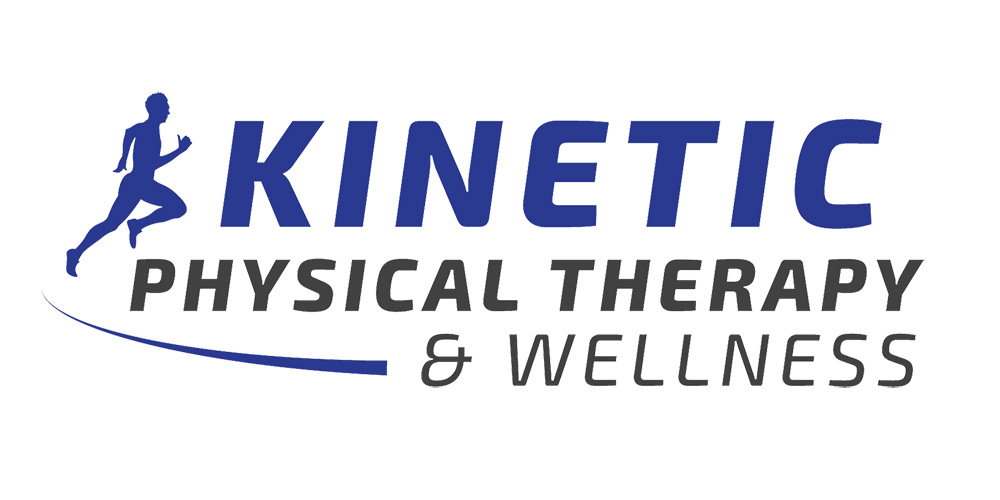

Essential Nutrients: 6 Vitamins and Minerals You Need for Optimal Health
In the quest for overall well-being, proper nutrition plays a pivotal role. Among the myriad of nutrients, certain vitamins and minerals stand out for their vital functions in the body. At Kinetic Physical Therapy and Wellness, we recognize the importance of these essential nutrients in maintaining optimal health.
Some people are deficient in certain vitamins, for example, Vitamin D3. There are signs and symptoms that you can be on the lookout for as well as lab results that your physician may order.
Let's delve into six of these vital vitamins and minerals and explore why they're essential for your well-being.
Vitamin D:
Often referred to as the “sunshine vitamin,” Vitamin D is crucial for bone health, immune function, and mood regulation. It facilitates calcium absorption, contributing to strong bones and teeth. Inadequate levels of Vitamin D have been linked to increased risk of various health issues, including osteoporosis and depression. Incorporate sources like sunlight exposure, fatty fish, fortified dairy products, and supplements to meet your daily needs.
- Deficiency Symptoms – fatigue, frequent illness, bone and back pain, anxiety, depression, slower wound healing, bone loss, hair loss, muscle pain and weight gain.
- Normal Lab Values – 30-100 ng/mL
- Foods with Vitamin D – fatty fish, eggs, milk, fortified plant beverages, cod liver oil
- Recommended Adult Supplement dose – Spend 10-15 min outside each day! Dose of 1,000 – 2,000 IU/day is appropriate for most people.
- Take with food or a source of fat, so it will be better absorbed. If taking Calcium supplement, take it at the same time.
Vitamin B12:
Vitamin B12 is essential for red blood cell formation, neurological function, DNA synthesis, and energy metabolism. It also plays a role in mood regulation and cognitive health. Deficiency in Vitamin B12 can result in anemia, neurological problems, fatigue, and mood disturbances. Include sources like meat, fish, eggs, dairy products, and fortified foods to maintain adequate Vitamin B12 levels, especially for vegetarians and vegans who may be at higher risk.
- Deficiency Symptoms – fatigue, headaches, depression, pale or yellow skin, mental impairment, and pain and inflammation in the mouth and tongue
- Normal Lab Values – >300 pg/mL (borderline is 200-300 pg/mL)
- Foods with Vitamin B12 – animal liver/kidney, clams, sardines, tuna, trout, salmon, beef, fortified cereal, egg, cow milk, and non-dairy milk
- Recommended Adult Supplement dose – 2.4 mcg/day
Vitamin C:
Known for its powerful antioxidant properties, Vitamin C plays a key role in immune function, collagen synthesis, wound healing, and iron absorption. It helps protect cells from damage caused by free radicals, supporting overall health and vitality. Incorporate citrus fruits, strawberries, bell peppers, and leafy greens into your diet to boost your Vitamin C intake.
- Deficiency Symptoms – fatigue, red gums, easy bruising and bleeding, joint pain and rough, bumpy skin, bones may become brittle, nail and hair deformities, wounds may take longer to heal, immune system suffers, Inflammation, iron-deficiency anemia, and unexplained weight gain may be other signs.
- Normal Lab Values – 0.6 – 2 mg/dL
- Foods with Vitamin C – Broccoli, cantaloupe, pineapple, asparagus, avocados, collards, kale, Sweet red pepper, Kiwifruit, Lemon, Orange, Strawberry, Papaya, Broccoli, Parsley
- Recommended Adult Supplement dose – 75-90 mg/day
Calcium:
As a major mineral in the body, calcium is essential for bone health, muscle function, nerve transmission, and blood clotting. Insufficient calcium intake can lead to weakened bones, increasing the risk of fractures and osteoporosis, especially as you age. Ensure an adequate intake through dairy products, leafy greens, fortified foods, and supplements if needed.
- Deficiency Symptoms – muscle spasms, depression, confusion, muscle cramps, hallucinations, weak and brittle nails, easy bone fractures, and seizures.
- Normal Lab Values – 8.6-10.2 mg/dL
- Foods with Calcium – yogurt, milk, cheese, sardines, salmon, soy milk, nuts, seeds, tofu, kale, legumes (beans), fortified juices and cereal.
- Recommended Adult Supplement dose – 1000-1200 mg/day
- Recommended to take at the same time as Vitamin D. Do not take with Iron.
Iron:
Iron is vital for the production of hemoglobin, the protein in red blood cells that carries oxygen throughout the body. It’s also involved in energy metabolism, immune function, and cognitive development. Iron deficiency can lead to anemia, fatigue, weakness, and impaired immune function. Consume iron-rich foods such as lean meats, poultry, fish, beans, lentils, spinach, and fortified cereals to prevent deficiency.
- Deficiency Symptoms – fatigue, shortness of breath, dizziness, headache, pale skin, weak and brittle nails, difficulty concentrating, poor memory.
- Normal Lab Values – 26–170 mcg/dL in women and 76–198 mcg/dL in men
- Foods with Iron – shellfish, liver, red meat, turkey, spinach, legumes, pumpkin seeds, quinoa, broccoli, tofu
- Recommended Adult Supplement dose – 8-18mg/day
- Certain foods can reduce how well iron is absorbed in the body – Black or green teas, Coffee, Fiber-containing products like bread, Soy products. Iron supplements may reduce the absorption of other key micronutrients, including zinc, copper, magnesium, and manganese.
Calcium may interfere with iron absorption. Take iron and calcium supplements at different times of the day.
Magnesium:
This essential mineral is involved in hundreds of biochemical reactions in the body, including energy production, muscle and nerve function, and protein synthesis. Magnesium also contributes to bone health, heart rhythm regulation, and blood sugar control. Incorporate sources like nuts, seeds, whole grains, leafy greens, and legumes to ensure adequate magnesium intake.
- Deficiency Symptoms – loss of appetite, nausea and vomiting, fatigue, numbness and tingling, muscle contractions, seizures, personality changes, abnormal heart rhythms,
- Normal Lab Values –
- Foods with Magnesium – pumpkin seeds, chia seeds, spinach (boiled), almonds, cashews, black beans, edamame, peanut butter, brown rice, salmon, halibut, avocado
- Recommended Adult Supplement dose – 320-420 mg/day
Prioritizing these six vitamins and minerals in your diet is crucial for maintaining overall health and well-being. At Kinetic Physical Therapy and Wellness, we emphasize the importance of proper nutrition in supporting your body’s natural healing processes and optimizing your physical performance. By incorporating nutrient-rich foods and, when necessary, supplements into your daily routine, you can ensure that your body receives the essential nutrients it needs to thrive. Start making healthier choices today for a happier, healthier tomorrow.
Before starting any supplements, check with your physician to see if you are deficient in any vitamins and minerals. Also check with your pharmacist to ensure that any vitamins or minerals you take won’t interfere with any prescription medications.
Please Share
categories
Recent Posts

Essential Nutrients: 6 Vitamins and Minerals You Need for Optimal Health
In the quest for overall well-being, proper nutrition plays a pivotal role. Among the myriad of nutrients, certain vitamins and minerals stand out for their vital functions in the body. At Kinetic Physical Therapy and Wellness, we recognize the importance of these essential nutrients in maintaining optimal health.
Some people are deficient in certain vitamins, for example, Vitamin D3. There are signs and symptoms that you can be on the lookout for as well as lab results that your physician may order.
Let's delve into six of these vital vitamins and minerals and explore why they're essential for your well-being.
Vitamin D:
Often referred to as the “sunshine vitamin,” Vitamin D is crucial for bone health, immune function, and mood regulation. It facilitates calcium absorption, contributing to strong bones and teeth. Inadequate levels of Vitamin D have been linked to increased risk of various health issues, including osteoporosis and depression. Incorporate sources like sunlight exposure, fatty fish, fortified dairy products, and supplements to meet your daily needs.
- Deficiency Symptoms – fatigue, frequent illness, bone and back pain, anxiety, depression, slower wound healing, bone loss, hair loss, muscle pain and weight gain.
- Normal Lab Values – 30-100 ng/mL
- Foods with Vitamin D – fatty fish, eggs, milk, fortified plant beverages, cod liver oil
- Recommended Adult Supplement dose – Spend 10-15 min outside each day! Dose of 1,000 – 2,000 IU/day is appropriate for most people.
- Take with food or a source of fat, so it will be better absorbed. If taking Calcium supplement, take it at the same time.
Vitamin B12:
Vitamin B12 is essential for red blood cell formation, neurological function, DNA synthesis, and energy metabolism. It also plays a role in mood regulation and cognitive health. Deficiency in Vitamin B12 can result in anemia, neurological problems, fatigue, and mood disturbances. Include sources like meat, fish, eggs, dairy products, and fortified foods to maintain adequate Vitamin B12 levels, especially for vegetarians and vegans who may be at higher risk.
- Deficiency Symptoms – fatigue, headaches, depression, pale or yellow skin, mental impairment, and pain and inflammation in the mouth and tongue
- Normal Lab Values – >300 pg/mL (borderline is 200-300 pg/mL)
- Foods with Vitamin B12 – animal liver/kidney, clams, sardines, tuna, trout, salmon, beef, fortified cereal, egg, cow milk, and non-dairy milk
- Recommended Adult Supplement dose – 2.4 mcg/day
Vitamin C:
Known for its powerful antioxidant properties, Vitamin C plays a key role in immune function, collagen synthesis, wound healing, and iron absorption. It helps protect cells from damage caused by free radicals, supporting overall health and vitality. Incorporate citrus fruits, strawberries, bell peppers, and leafy greens into your diet to boost your Vitamin C intake.
- Deficiency Symptoms – fatigue, red gums, easy bruising and bleeding, joint pain and rough, bumpy skin, bones may become brittle, nail and hair deformities, wounds may take longer to heal, immune system suffers, Inflammation, iron-deficiency anemia, and unexplained weight gain may be other signs.
- Normal Lab Values – 0.6 – 2 mg/dL
- Foods with Vitamin C – Broccoli, cantaloupe, pineapple, asparagus, avocados, collards, kale, Sweet red pepper, Kiwifruit, Lemon, Orange, Strawberry, Papaya, Broccoli, Parsley
- Recommended Adult Supplement dose – 75-90 mg/day
Calcium:
As a major mineral in the body, calcium is essential for bone health, muscle function, nerve transmission, and blood clotting. Insufficient calcium intake can lead to weakened bones, increasing the risk of fractures and osteoporosis, especially as you age. Ensure an adequate intake through dairy products, leafy greens, fortified foods, and supplements if needed.
- Deficiency Symptoms – muscle spasms, depression, confusion, muscle cramps, hallucinations, weak and brittle nails, easy bone fractures, and seizures.
- Normal Lab Values – 8.6-10.2 mg/dL
- Foods with Calcium – yogurt, milk, cheese, sardines, salmon, soy milk, nuts, seeds, tofu, kale, legumes (beans), fortified juices and cereal.
- Recommended Adult Supplement dose – 1000-1200 mg/day
- Recommended to take at the same time as Vitamin D. Do not take with Iron.
Iron:
Iron is vital for the production of hemoglobin, the protein in red blood cells that carries oxygen throughout the body. It’s also involved in energy metabolism, immune function, and cognitive development. Iron deficiency can lead to anemia, fatigue, weakness, and impaired immune function. Consume iron-rich foods such as lean meats, poultry, fish, beans, lentils, spinach, and fortified cereals to prevent deficiency.
- Deficiency Symptoms – fatigue, shortness of breath, dizziness, headache, pale skin, weak and brittle nails, difficulty concentrating, poor memory.
- Normal Lab Values – 26–170 mcg/dL in women and 76–198 mcg/dL in men
- Foods with Iron – shellfish, liver, red meat, turkey, spinach, legumes, pumpkin seeds, quinoa, broccoli, tofu
- Recommended Adult Supplement dose – 8-18mg/day
- Certain foods can reduce how well iron is absorbed in the body – Black or green teas, Coffee, Fiber-containing products like bread, Soy products. Iron supplements may reduce the absorption of other key micronutrients, including zinc, copper, magnesium, and manganese.
Calcium may interfere with iron absorption. Take iron and calcium supplements at different times of the day.
Magnesium:
This essential mineral is involved in hundreds of biochemical reactions in the body, including energy production, muscle and nerve function, and protein synthesis. Magnesium also contributes to bone health, heart rhythm regulation, and blood sugar control. Incorporate sources like nuts, seeds, whole grains, leafy greens, and legumes to ensure adequate magnesium intake.
- Deficiency Symptoms – loss of appetite, nausea and vomiting, fatigue, numbness and tingling, muscle contractions, seizures, personality changes, abnormal heart rhythms,
- Normal Lab Values –
- Foods with Magnesium – pumpkin seeds, chia seeds, spinach (boiled), almonds, cashews, black beans, edamame, peanut butter, brown rice, salmon, halibut, avocado
- Recommended Adult Supplement dose – 320-420 mg/day
Prioritizing these six vitamins and minerals in your diet is crucial for maintaining overall health and well-being. At Kinetic Physical Therapy and Wellness, we emphasize the importance of proper nutrition in supporting your body’s natural healing processes and optimizing your physical performance. By incorporating nutrient-rich foods and, when necessary, supplements into your daily routine, you can ensure that your body receives the essential nutrients it needs to thrive. Start making healthier choices today for a happier, healthier tomorrow.
Before starting any supplements, check with your physician to see if you are deficient in any vitamins and minerals. Also check with your pharmacist to ensure that any vitamins or minerals you take won’t interfere with any prescription medications.
Please Share









